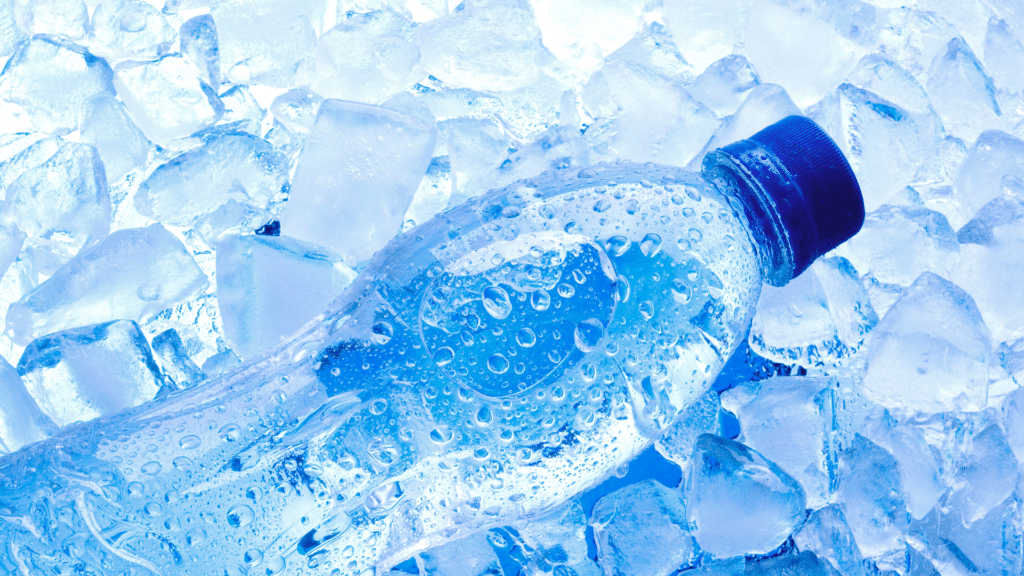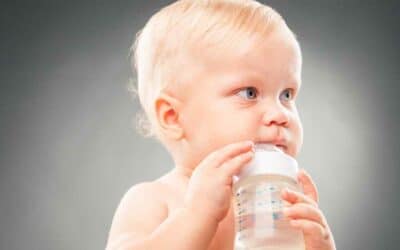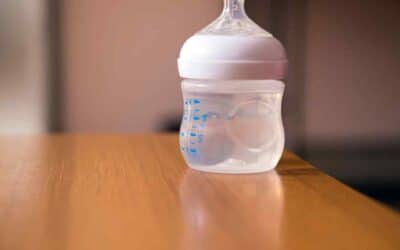As a parent, ensuring the fluoride free water of your baby is a top priority. One aspect of this responsibility includes providing them with clean and safe water for drinking and preparing formula.
With the ongoing debate surrounding fluoride in water, many parents are left wondering if fluoride-free water is suitable for their little ones.
In this blog, we will explore the role of fluoride in water, discuss potential concerns for babies, and guide on choosing fluoride-free water options.
We will also delve into the importance of dental care and hygiene practices and expert perspectives and guidelines to help you make informed decisions for your baby’s health and development.

Understanding Fluoride Free Water
Fluoride is a naturally occurring mineral crucial in maintaining your baby’s dental health. It’s commonly found in various drinking water sources, such as groundwater, rivers, and tap water.
Fluoride in water can come from natural sources, like rocks and soil, or from added fluoride in community water systems to help improve dental health. The presence of fluoride in water has been proven to be effective in preventing tooth decay, especially in young children.
By strengthening the tooth enamel and inhibiting the growth of harmful bacteria, fluoride helps to protect your baby’s teeth against cavities and dental caries. The American Dental Association (ADA) recommends a fluoride concentration of 0.7 milligrams per liter (mg/L) in drinking water for optimal dental health.
However, it’s important to be aware of the potential risks of too much fluoride in your baby’s water. Excessive fluoride consumption can lead to dental fluorosis, which causes discoloration and mottling of the tooth enamel. In severe cases, it can also cause skeletal fluorosis, which affects bone health.
To ensure that your baby consumes water with the appropriate fluoride levels, check the fluoride content of your tap water or bottled water, and consult your pediatrician for guidance. Setting the foundation for a lifetime of healthy teeth and a beautiful smile starts with providing the right fluoride balance in your baby’s water.
Potential Concerns with Fluoride Free Water
While fluoride offers dental health benefits, knowing about potential infant concerns is important. Some of these include:
Dental Fluorosis
A condition caused by excessive fluoride consumption during the early years, leading to white or brown spots on the teeth. Although not harmful to overall health, it can result in cosmetic concerns.
Multiple Sources of Fluoride Exposure
Babies might be exposed to fluoride through tap water, certain bottled waters, infant formula, and some foods. This can potentially lead to higher fluoride consumption than necessary, increasing the risk of dental fluorosis. When you reconstitute infant formula with fluoridated water, be aware of the fluoride content to avoid overexposure.
Fluoride Intake Management
To minimize the risk of dental fluorosis, parents should monitor their baby’s fluoride intake and consider using fluoride-free water for mixing infant formula and other baby beverages.
Sometimes, a pediatrician may recommend fluoride drops as a supplement for babies not getting enough fluoride from their water source. However, following the pediatrician’s guidance and dosage recommendations is essential to avoid potential risks.
By being mindful of these concerns and taking appropriate precautions, parents can help ensure their baby receives the benefits of fluoride while avoiding potential risks.

Evaluating Fluoride Free Water Options
When it comes to Evaluating Fluoride-Free Water Options, there are several types available for those who prefer to avoid fluoride in their drinking water. Distilled water, reverse osmosis water, and spring water are some common choices.
While fluoride is often added to tap water to promote dental health, some parents may wonder about the safety and suitability of fluoride-free water for infants. It’s essential to note that the American Dental Association (ADA) and the Centers for Disease Control and Prevention (CDC) support the use of fluoridated water for babies, but if you choose to go fluoride-free, ensure that your infant receives adequate fluoride from other sources, such as fluoride toothpaste or supplements.
When selecting fluoride-free water for your baby, consider factors like the source, purification process, and any potential contaminants. Always consult with your pediatrician or a dental professional to make the best decision for your child’s health.
Dental Care and Hygiene Practices
Proper oral hygiene is essential for everyone, and it’s especially important to establish good habits early in life. In fact, dental care for infants is a crucial aspect of their overall health. Many parents may not realize that even before the first tooth emerges, it’s important to keep their baby’s gums clean by gently wiping them with a soft, damp cloth after feedings.
As your child grows and their teeth begin to appear, it’s time to introduce brushing techniques and dental care recommendations. Start by using a small, soft-bristled toothbrush and a tiny amount of fluoride toothpaste, about the size of a grain of rice.
Gently brush your child’s teeth in small circles, taking care to reach all surfaces. As your child gets older, you can teach them to brush their teeth using a pea-sized amount of toothpaste and encourage them to spit out the excess rather than swallowing it.
While fluoride is an essential component of dental health, some parents may prefer to explore fluoride alternatives for their children. It’s important to discuss these options with your child’s dentist, who can provide guidance on which products may be suitable for your child’s specific needs.
Additionally, consider incorporating other dental health measures, such as regular dental checkups, a balanced diet, and limiting sugary snacks to further support your child’s oral health.
The Centers for Disease Control (CDC) also offers guidelines and recommendations for proper dental care and hygiene practices, emphasizing the importance of starting dental care early in life.
By following these guidelines and working closely with your child’s dentist, you’re setting your child up for a lifetime of healthy smiles. Remember, it’s never too early to start taking care of your child’s teeth!

Expert Perspectives and Guidelines
Renowned pediatric dentists and healthcare professionals emphasize the importance of maintaining the right balance between fluoride intake and dental health goals for babies.
Authoritative organizations, such as the American Dental Association (ADA) and the American Academy of Pediatrics (AAP), provide valuable recommendations on using fluoride-free water for babies during their early years.
Some key insights from these experts include:
ADA’s Stance On Fluoride:
The ADA supports using fluoridated water for babies, stating that it can help prevent tooth decay and promote dental health. They also endorse community water fluoridation as a safe and effective way to improve oral health.
However, they also acknowledge that some parents may prefer fluoride-free water and recommend discussing this with a pediatric dentist or healthcare professional.
AAP’s Recommendations:
The AAP advises that babies under six months should not receive fluoride supplements, as their risk of developing dental fluorosis is higher. They also suggest using fluoride-free water to mix infant formula if the local water supply contains high fluoride levels.
Monitoring Fluoride Intake:
Experts recommend keeping track of your baby’s fluoride intake from various sources, including water, formula, and food, to ensure they receive the right amount for optimal dental health without increasing the risk of dental fluorosis.

Consulting Professionals:
It’s essential to consult with your pediatrician or a dental professional when deciding about your child’s fluoride intake and dental care, as they can provide personalized guidance based on your child’s specific needs.
By following these expert guidelines and staying informed about the latest recommendations, parents can make well-informed decisions about their baby’s dental care and ensure optimal dental health while minimizing potential risks associated with excessive fluoride intake.
Ensuring Water Quality and Safety
Providing your baby with clean and safe water is of utmost importance for their health and well-being. Since infants have a developing immune system, they are more susceptible to waterborne contaminants and illnesses. Therefore, it is crucial to ensure that the water you give your baby is of the highest quality.
When considering fluoride-free water options for your baby, there are several factors to take into account. First, make sure the water is from a trusted source, such as a reputable bottled water brand or a well-maintained private well.
If you are using tap water, consider installing a water filter to remove any potential contaminants. Additionally, always check the label of bottled water to confirm that it is fluoride-free.
To maintain the quality and safety of fluoride-free water for your infant, follow these tips for handling, storage, and preparation:
- Store water properly: Keep bottled water in a cool, dark place away from direct sunlight and heat to prevent the growth of harmful bacteria.
- Boil tap water for infants under six months: Boiling tap water for at least one minute can help eliminate any potential contaminants. Remember to let it cool to room temperature before giving it to your baby or using it to prepare the formula.
- Use clean bottles and feeding equipment: Ensure that all feeding equipment, such as bottles and nipples, are thoroughly cleaned and sterilized before use to minimize the risk of contamination.
- Discard leftover water: Do not reuse water that your baby has already drunk, as bacteria from their mouth can contaminate the water. Always provide fresh water for each feeding.
By following these guidelines and carefully considering your fluoride-free water options, you can ensure that your baby receives the best possible care and protection for their health and development.

The Role of Fluoride Toothpaste for Babies
Using fluoride toothpaste is another aspect of fluoride exposure that parents should consider for their infants. From the age when the first tooth emerges, oral care products come into play, with toothpaste being the essential one.
According to the American Dental Association (ADA), brushing with a small smear of fluoride toothpaste can help protect children’s teeth from decay. A rice grain-sized smear is recommended to be used until your child reaches three years of age. From age three to six, a pea-sized amount is suitable.
Fluoride toothpaste helps reduce and prevent tooth decay because the fluoride helps to harden the tooth enamel, making it more resistant to the acid attack of harmful bacteria. It can also reverse early decay. However, as with fluoride in drinking water, there are concerns about how much is too much.
Swallowing toothpaste can contribute significantly to a child’s daily fluoride intake, especially if they are already consuming fluoridated water or other sources of fluoride. Therefore, it’s crucial to supervise your child during brushing to ensure they do not swallow the toothpaste.
Moreover, parents should also be aware of the flavor of the toothpastes, as some flavored toothpastes may compel the child to swallow instead of spit it out, further increasing the risk of swallowing excess fluoride.
For parents who are concerned about their children’s fluoride exposure, there are fluoride-free toothpaste options available in the market. These can be an appropriate choice for very young children who are yet to learn spitting out toothpaste properly.
Remember, no matter what you choose, the recommendation is to help your child brush until they develop the coordination to do it effectively by themselves, which occurs around the age of six or seven. This includes ensuring they spit out the toothpaste when finished brushing.
Remember, ensuring your baby’s dental health is a balancing act. The goal is to give them enough fluoride to protect their teeth but not so much that it might cause problems such as dental fluorosis. It’s always advisable to consult with a pediatric dentist or healthcare professional to make the best possible decisions about your child’s fluoride intake and dental care.
Although fluoride toothpaste is effective in preventing tooth decay, like other sources of fluoride, its usage must be moderated carefully, especially with toddlers. Use the correct quantity, supervise brushing, and, most importantly, teach them to spit out toothpaste after brushing to ensure adequate but not excessive exposure to fluoride.

Conclusion
In conclusion, ensuring your baby’s safety and dental health is a top priority for parents. While fluoride plays a crucial role in maintaining dental health, it’s essential to be mindful of potential concerns and risks associated with excessive fluoride intake for infants.
By exploring fluoride-free water options and following expert guidelines, you can make informed decisions about your baby’s dental care and overall well-being. Remember to consult with your pediatrician or a dental professional to determine the best course of action for your child.
By prioritizing dental care and hygiene practices from an early age, you are setting your child up for a lifetime of healthy smiles and optimal dental health.
Did this article help you? Please feel free to ask any questions in the comments below, and we’ll do our best to answer them.



